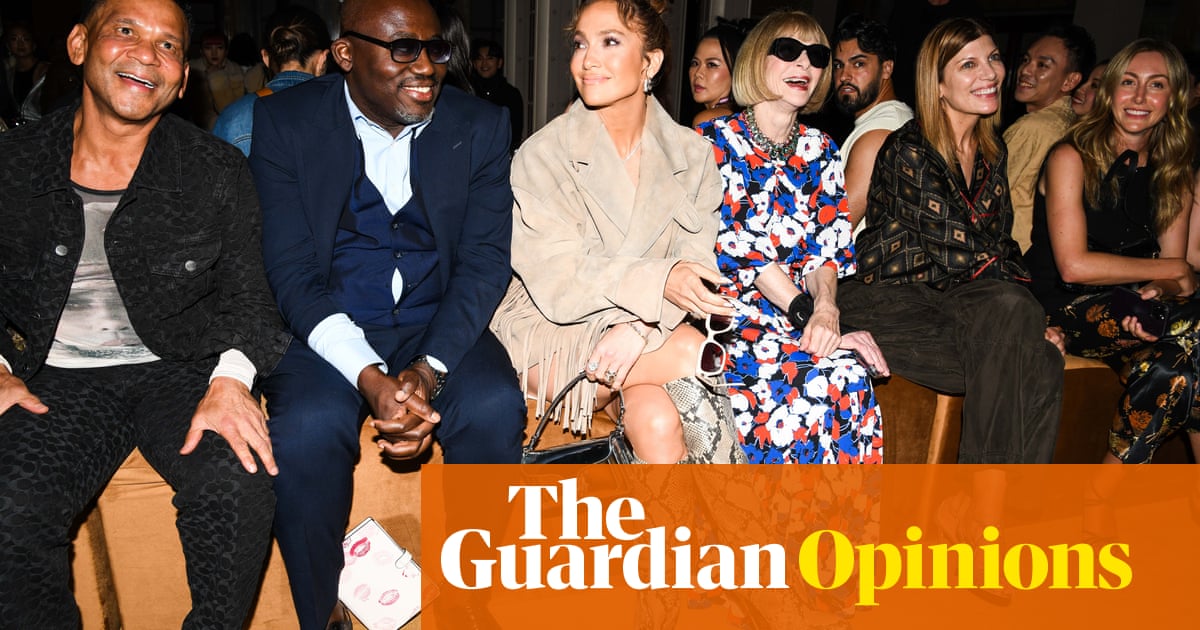The scene is May or maybe June 2008, PO (pre-Obama). I was toiling away at my desk while dreaming of escaping my finance job in the City of London to become a successful writer (still working on the “successful” part). Out of the blue, I received a message on my BlackBerry, something about Vogue Italia using only Black models and “experts” predicting it would be the worst-selling edition ever … hence we, Black people had to go out en masse, and buy it. Before the day ended, I had received the same message, or a variation of it, dozens of times.
Whether it was a sincere plea for communal solidarity or a sinister viral marketing campaign or both, it worked: despite being in a language I can barely order a glass of water in, for the first time in my life I bought a fashion magazine from the newsstands. I was far from alone: the magazine sold out in 72 hours on both sides of the Atlantic, triggering a huge reprint of 30,000 copies in the US, 20,000 in Italy and 10,000 in the UK. The moment made clear, to even a layperson, that fashion had a serious diversity issue. Put more precisely, fashion had an anti-Blackness issue, which would make it pretty much a conventional western industry or institution.
About 10 years later, British Vogue would have its own Obama moment, when Edward Enninful was appointed editor. Enninful, a Ghanaian-born, British-raised son of Ladbroke Grove, was a veteran stylist (he was, in fact, the stylist for all the models featured in the all-Black issue of Vogue Italia back in 2008). A somewhat enigmatic figure who was first appointed the fashion director of i-D magazine at the age of 18 and had also served as the fashion and style director of W magazine, Enninful was the first man and first Black person to hold the title. In retrospect, it was the equivalent of handing him the keys to a one-of-a-kind Rolls-Royce, asking him to drive 1,000 miles through a tsunami and return it in pristine condition. Full tank. Somehow, he pulled it off.
When Enninful was appointed editor of British Vogue, Britain lagged massively behind the US in terms of diversity watershed moments. No Black or brown person had ever held a great office of state, a Black or brown prime minister was a pipe dream (which swiftly became a real-life nightmare), the number of Black people with, say, TV commissioning power was roughly neck and neck with the number of Black people in the royal family (zero), and fashion (including fashion media), much like the rest of British media, arts and culture, was still largely a playground of pigmentation-free, upper middle-class privilege.
So Enninful’s diversity watershed moment was met with a backlash. “It’s as though we entered Crufts and the cat won” was a remark Enninful attributed to a rival editor he beat to the top job. Unconscious racism reared its head, too, when editor Enninful was reportedly instructed by a white security guard to use the loading bay lift in his company’s building. Harsh as they may have been, these experiences and words appeared to do more to fuel than faze the now outgoing Vogue editor.
Today Enninful stands tall as the undisputed master in the art, craft and business of fashion media. The diversity of thought, personnel and tone from the top that he brought to the table helped him elevate British Vogue during a period of crisis for print media – all while maintaining the core essence and readership of the publication. His grasp of the genre meant he was able to subvert it. To flip it on its head and take it to places it had not been before, while creating opportunities for people who would previously have been outsiders to the industry.
Under his editorship, British Vogue became a key organ for the irreversible movements towards a more diverse, compassionate and genuinely competitive Britain. The dirty topics of much of British media – race, disability, queerness, sustainability, climate crisis, “wokeness” – became selling points for British Vogue.
As high-level politics has demonstrated, the appointment of people of colour to powerful jobs can be a blessing, a disappointing indifference, or a crushing curse to fellow people of colour. Enninful was a blessing. His editorship represented a full-spectrum broadening of the pool of possibilities (and personnel) in fashion and beauty journalism. Misan Harriman, who rapidly went from recruitment agent to photographer to Oscar-nominated director, became the first Black photographer to shoot the cover of British Vogue in its then 104-year history. Titans of Black British thought and literature such as Yomi Adegoke, Bernardine Evaristo and Afua Hirsch became regular features in the publication. Perhaps his unique achievement in this regard is that he is handing the reins to another Black person, Chioma Nnadi.
Enninful’s final cover, shot by the famed photographer Steven Meisel (who also shot all the models in the 2008 all-Black issue) features a who’s who of models, celebrities and activists, including Naomi Campbell and Iman, Serena Williams, Oprah Winfrey and the fashion designer Victoria Beckham. The stark diversity of the cover is a reflection of Enninful’s tenure as editor, how he changed fashion and beauty journalism and the progressive impact he had on Britain and the world. He left his mark, one Britain will be unable to erase.
-
Nels Abbey is a writer, broadcaster and former banker, and the author of Think Like A White Man. His new book, The Hip Hop MBA: Lessons in Cut-Throat Capitalism from Rap’s Moguls, is out in April
-
Do you have an opinion on the issues raised in this article? If you would like to submit a response of up to 300 words by email to be considered for publication in our letters section, please click here.







